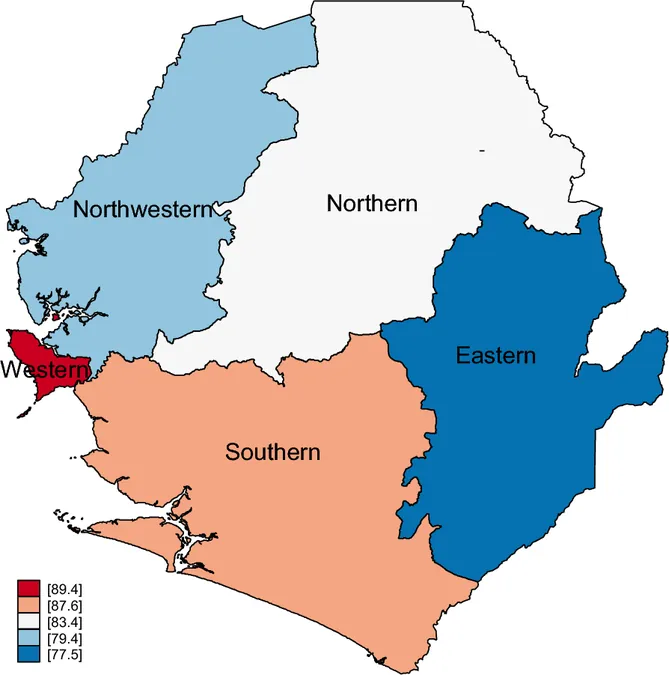
Breakthrough Gene Discovery Sparks Hope for an HIV Vaccine!
2024-10-30
Author: Rajesh
Breakthrough in HIV Vaccine Research
In a groundbreaking advancement towards developing an effective vaccine for HIV, researchers at Oregon Health & Science University (OHSU) have successfully identified a gene that could hinder the efficacy of their vaccine in humans. This pivotal study, published on October 11 in the prestigious journal *Science Immunology*, serves to dissolve yet another barrier in the quest for an HIV vaccine, potentially benefiting the fight against other diseases like malaria and cancer as well.
Significant Findings by OHSU Researchers
Leading the charge, Dr. Daniel Malouli, an assistant professor at the OHSU Vaccine and Gene Therapy Institute, emphasized the importance of their findings in understanding the role of human cytomegalovirus (HCMV) genes and their interaction with the immune response necessary for an effective HIV vaccine. His research team explored whether certain HCMV genes could limit the desired immune response that is critical for vaccine success.
Unique T Cell Responses
Notably, previous experiments with nonhuman primates demonstrated that vaccines based on rhesus cytomegalovirus (RhCMV) induced unique T cell responses that cannot be seen with other vaccine types. These unique immune reactions have proven to be vital in making RhCMV-based vaccines effective against simian immunodeficiency virus (SIV)—the primary model for studying HIV/AIDS in these animals.
Transitioning to Human Applications
“To transition these findings to human applications, it’s crucial that our HCMV-based vaccines evoke similar T cell responses in human subjects,” highlighted Malouli.
Decades of Research Efforts
Over several decades, researchers at OHSU have made significant strides in understanding the similarities and differences between human CMV and rhesus CMV. They have previously discovered that specific genes within the rhesus CMV must be switched off to trigger the necessary immune responses. This accumulated knowledge stems from the dedicated efforts of a formidable research team that includes esteemed professionals such as Louis Picker, M.D., Klaus Früh, Ph.D., and Scott Hansen, Ph.D.
From TomegaVax to Vital Collaborations
Since embarking on this research journey in the early 2000s, the team saw their startup TomegaVax—created to further investigate this vaccine platform—acquired by Vir Biotechnology in San Francisco in 2016. Currently, this promising company is collaborating with the National Institutes of Health and the Bill and Melinda Gates Foundation to conduct human clinical trials for the HIV vaccine.
Impact of the Recent Study
For the recent study, the team introduced 41 human CMV-specific genes into the rhesus CMV genome and subsequently analyzed the immune responses in nonhuman primates. They discovered that one specific gene, UL18, actually inhibited the desired immune responses by interacting with a receptor on T cells, which prevents their reprogramming.
Future Directions in Vaccine Development
Thanks to this insight, Dr. Früh announced that the team is now focused on developing a human CMV-based vaccine for HIV that deliberately excludes UL18 and other inhibitory genes. He stated, “Our ultimate aim is to engineer a novel vaccine strategy not only for HIV but also for other significant diseases like cancer.”
Endless Potential of CMV Vector System
The excitement doesn't stop there! Malouli reiterated the boundless potential of this CMV vector system pioneered at OHSU, highlighting its applicability to a vast range of diseases beyond HIV.
A Glimpse into the Future
As the OHSU team continues its promising work, the scientific community and global health advocates hold their breath. Could this breakthrough lead to a viable HIV vaccine and pave the way for new strategies against other diseases? The implications are truly exciting, as scientists and researchers remain committed to transforming this groundbreaking discovery into tangible health solutions for millions around the world.




 Brasil (PT)
Brasil (PT)
 Canada (EN)
Canada (EN)
 Chile (ES)
Chile (ES)
 España (ES)
España (ES)
 France (FR)
France (FR)
 Hong Kong (EN)
Hong Kong (EN)
 Italia (IT)
Italia (IT)
 日本 (JA)
日本 (JA)
 Magyarország (HU)
Magyarország (HU)
 Norge (NO)
Norge (NO)
 Polska (PL)
Polska (PL)
 Schweiz (DE)
Schweiz (DE)
 Singapore (EN)
Singapore (EN)
 Sverige (SV)
Sverige (SV)
 Suomi (FI)
Suomi (FI)
 Türkiye (TR)
Türkiye (TR)